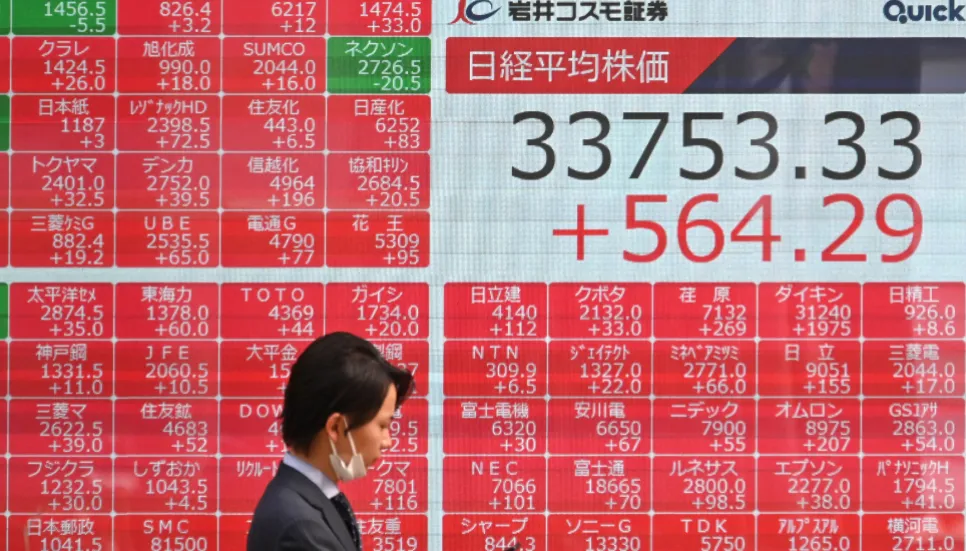
Asian stocks sank Tuesday following a sedate performance on Wall Street as investors nervously await the Federal Reserve's policy decision later in the week, while inflation worries were exacerbated by oil's push towards $100.
The meeting comes during a crucial week for markets, with the Bank of England expected to unveil what could be its last interest rate hike of this cycle, while the Bank of Japan will be closely followed for hints at a change from its ultra-loose stance.
While the Fed is seen keeping borrowing costs on hold Wednesday, debate continues to swirl over its plans for the months to come, with some policymakers saying more hikes would be needed to contain inflation while others want to stop at the current level.
However, while more than a year of tightening is close to an end, there is a growing concern that rates will be held elevated around two-decade highs for longer than initially anticipated.
Decision-making has also been complicated by a surge in oil prices in recent weeks, with Brent breaking $95 a barrel Tuesday and heading to $100 owing to an extended output cut by Saudi Arabia and Russia and signs China's economy is stabilising.
With energy a key driver of the spike in prices, there are growing fears that inflation will remain elevated and well above bank targets of two per cent.
"As always, the Federal Reserve's (policy) meeting... is expected to set the tone for global markets," said SPI Asset Management's Stephen Innes.
"While the Fed is likely to keep rates unchanged, it is expected to convey a resolutely hawkish stance through its statement and dot plots, potentially holding out the possibility of one more rate hike later this year," he added, referring to officials' predicted rate points.
Wall Street's three main indexes ended essentially flat Monday as dealers sat on their hands ahead of the Fed announcement.
Asia, however, was unable to hold up, with the majority of markets in the red.
Tokyo led losses as it reopened after a long weekend, while Shanghai, Mumbai, Bangkok, Seoul, Sydney, Singapore, Manila and Wellington were all down. Hong Kong eked out a small gain.
London and Paris edged up in the morning but Frankfurt was down.
"In a classic case of calm before the storm, investors have seemingly taken a wait-and-see mode ahead of the Fed, BoE and BoJ meetings," said Rodrigo Catril at National Australia Bank.
Crude markets are being closely followed as the commodity continues to rise, with both main contracts up more than a third since the middle of the year -- at 10-month highs -- largely fuelled by the production cuts by Riyadh and Moscow that are expected to stay until year's end.
Saudi Energy Minister Prince Abdulaziz bin Salman said in a speech on Monday the kingdom -- the world's biggest oil exporter -- would base its output on incoming data as it looks to keep the market stable.
"Proactive, preemptive and precaution -- these three words will address how we are attending to the situation knowing there are uncertainties coming from multiple directions," he told the World Petroleum Congress in Calgary, Canada.
However, he added that "the jury is still out" with regards to demand in China, even as data indicated the country's economy showed signs of stabilising.
But while talk of $100 a barrel is rising, Charu Chanana, of Saxo Capital Markets, said "we have little conviction (the spike) would be sustainable".
"Higher inflation could mean tighter monetary policies and OPEC+ can't control the demand side."